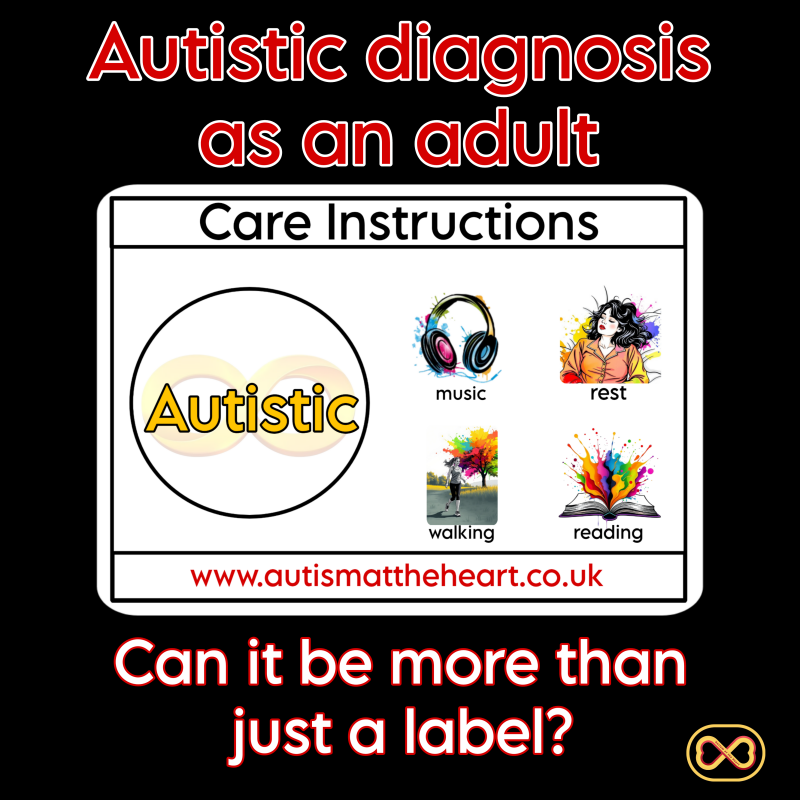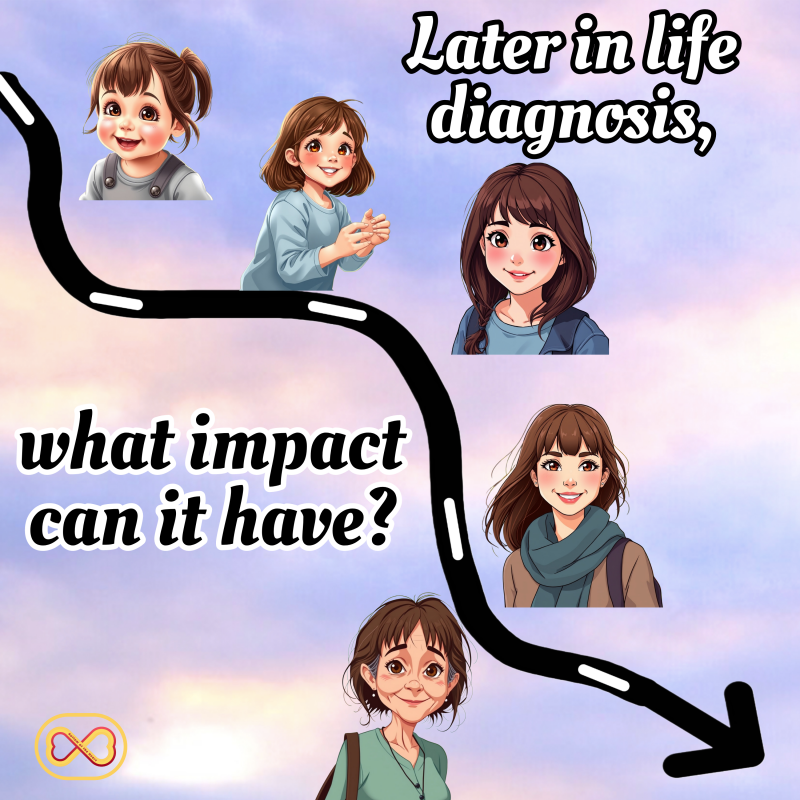
Two years ago this month I was diagnosed as Autistic. Although you are born Autistic it wasn't until I was officially told I was Autistic that I started to feel truly myself. 2022 was a tough year for me with my mental health but as soon as my diagnosis was confirmed I felt a huge weight had been lifted. I felt all my life that I didn't fit in and I had to work hard at being "normal" but now I didn't need to fit in because I was never meant to. I am neurodivergent in a neurotypical world. I feel more free now than I ever have.
That's what a diagnosis has given to me but it's not for everyone. As a parent of Autistic children I know how devastating it can be to realise your child may have difficulties in their life but the more I educate myself the more I realise that being Autistic isn't devastating. The key is realising the world isn't made for neurodivergent individuals and that's where the difficulties come in. For example, the neurotypical way to communicate is to speak but if someone needs sign language or communication devices it's not wrong, it's just different.
Don't get me wrong, I often cry when my children struggle to do things that most kids do without trying. I can get very depressed about it but I'm striving to help my children be proud of who they are and help them see their value in society.
Some people argue that we shouldn't label children or people but in my opinion knowing and understanding who you are can only benefit the person. Knowing your brain is different can help people to use certain strategies to cope in certain situations rather than being miserable wondering why they struggle with certain things. Understanding yourself can also help you find your strengths and celebrate them. I like to see a diagnosis as a care label, like on clothes, rather than anything negative.

I used to get upset with myself for not coping with social events but with a diagnosis I feel more confident to share what is manageable for me and what's not. It wasn't "normal" to hate parties, weddings and big celebrations but I forced myself to go in the hope I would be ok. Now, I don't go to these types of events and I celebrate the person in a different way. For example, we were invited to a family friend's 1st communion party. I wouldn't be able to cope with it and neither would my 3 children. So, instead we invited the family round to ours to have a lunch together. We all managed to enjoy the time shared together and celebrate the child's 1st communion.
Since my oldest son was diagnosed I've researched autism. I've read books, been on courses and talked to lots of differerent professionals about it. This knowledge made me question whether I was Autistic or not. My middle son is very similar to me in how he thinks and feels, that made me wonder even more if I could be Autistic. People thought I couldn't possibly be and I listened to them for years. But when my mental health became critical I knew I needed to find out for sure if I was Autistic or not. I needed to understand myself fully to be able to recover from my poor mental state. So, I went to my GP and asked to be assessed. I needed to complete a short questionnaire to see if I warranted a referral, I got the score required. Next I had to fill out a large questionnaire from the assessment centre and then I was assessed in person with my mother present to answer questions about my childhood. The results were discussed by a panel of professionals and then shared with me weeks later.
My initial reaction was one of joy. It made perfect sense and I felt I could learn to cope in life now I have this information about myself. The months after diagnosis involved me researching being Autistic as an adult and what it means for me. I learned about masking and started to see who I was without my mask. I still am discovering who the real me is and what I want in life.
I am so happy about being diagnosed. It has helped me to make sense of my life and learn how I can have a happy future. But getting a diagnosis is definitely a personal choice. Below are some pros and cons to seeking a diagnosis as an adult. I hope this helps.
Pros and cons to a diagnosis later in life:
Pros
1. Self understanding and identity
2. Sense of relief
3. Finding community and connection
4. Access to support and accomodations
5. Unmasking
6. Reducing judgment from others
7. A deeper understanding between you and your Autistic child (for those who have Autistic children)
Cons
1. Stigma
2. Diagnosis procedures can vary depending on where you live
3. Emotional impact
4. Misdiagnosis as many assessment criteria still focuses on the stereotypical view of being Autistic
5. People may reject your diagnosis
6. The assessment process is challenging


Add comment
Comments